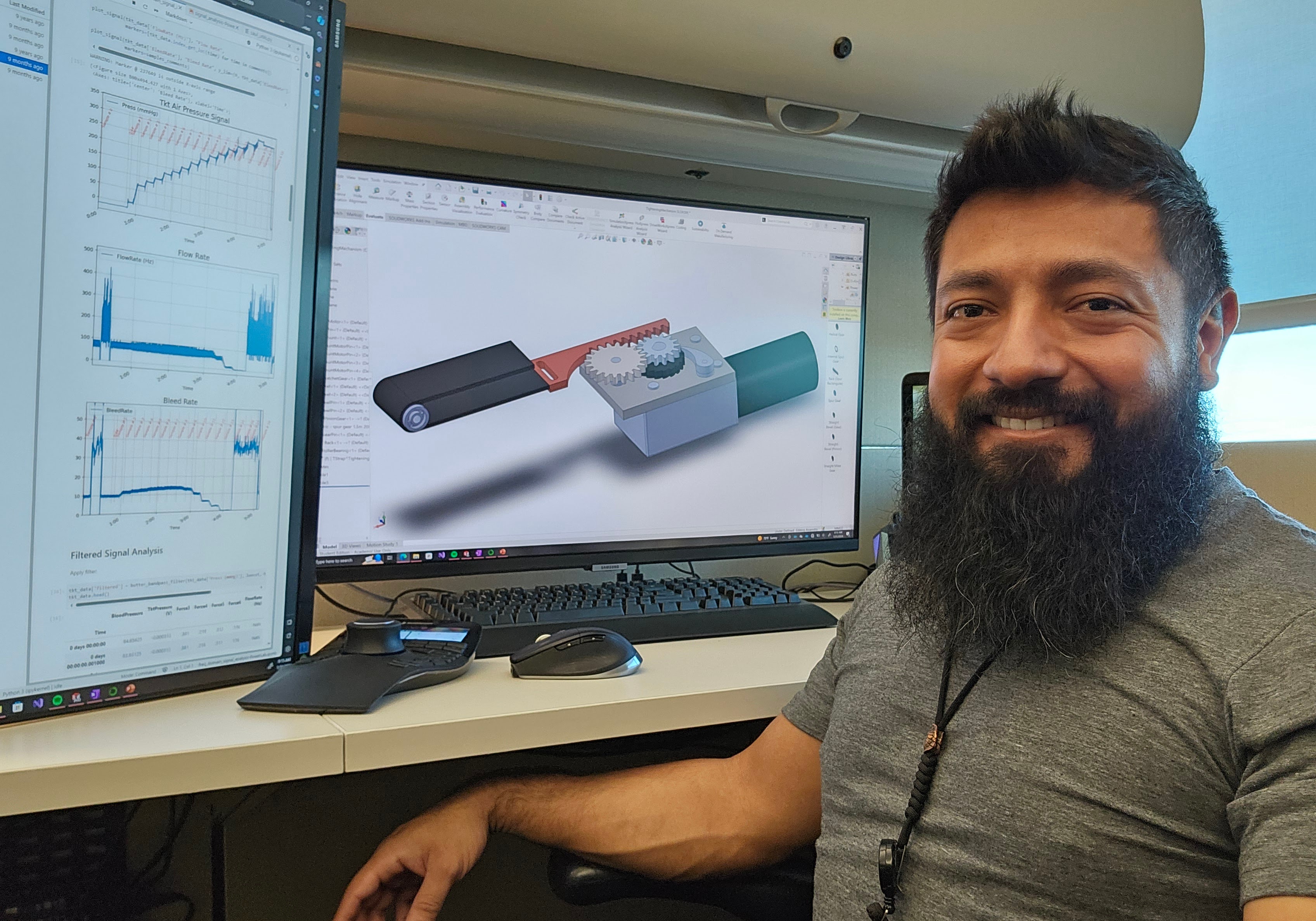Posted on February 22, 2024 by Storm Goodman

Michael Lopez
Solving grand challenges is the motto at Klesse College of Engineering and Integrated Design, and few students embody those words better than Michael Lopez. Michael, who placed second in the Microcomputer Systems Project by creating a 2phase RIFD scanner locking system, was granted the Undergraduate Research Program funding opportunity, and who has been a mainstay on the honor roll, has had no shortage of success throughout his time here at UTSA and is grateful for the people and opportunities that have helped him get where he is now.
"I feel like I belong at UTSA. If I could be a student here forever, I would."
Choosing to major in both Electrical Engineering and Computer Engineering, Michael knew he had his work cut out for him, but with the support of his professors as well as his own effort and determination, Michael excelled in his fields. When recalling the first hurdle he had to overcome that helped him develop his drive for excellence, Michael knew exactly what to say; his precalculus course. Michael had struggled in the course at first, but after countless hours of studying and relentless work, and the formation of a study group that grew over the semester to take up more than three tables in the John Peace Library, his determination paid off.
"Before I took the final exam, I knew I was going to get an A on it and an A in the class overall. That feeling of accomplishment was amazing, and the hard work paid off. That feeling has driven me in every class since then."
In the Summer of 2022, Michael applied to work under Dr. Jonathan Votion and was offered an even greater opportunity. Dr. Votion offered Michael the opportunity to conduct his research with funding through the Undergrad Research Program. During this time, Michael was able to explore his field and obtain the necessary skills and confidence in his abilities that would later help him throughout his internship. Michael was then presented with the opportunity to work in Makerspace’s 3-D printing lap under Dr. Don Petersen, another faculty member who made a huge impact on Michael’s journey. After weeks of hard work and learning valuable skills such as fabrication, applications of different materials, and how to lead a team, Michael was promoted to supervisor of the 3-D print lab.
"Dr. Petersen brought me an opportunity I couldn’t pass up. It was an internship at the U.S. Army Institute of Surgical Research. I didn’t know at the time that this was my dream job."
Michael began his internship at USAISR and almost instantly knew he was in the right place. USAISR's mission is to provide better care and treatment to casualties of combat; a mission that resonates heavily with Michael, who is a former infantry Marine himself. Michael became involved in many projects including one where he designed a robot arm capable of performing ultrasounds to find internal injuries. Michael’s design for that project was able to complete scans with less than a 1% error margin.
Throughout his time working on the various projects available at USAISR, there was one project in particular that caught Michael’s attention; the automatic pneumatic tourniquet. The device utilized an air bladder that would expand when it detected blood to prevent the wearer from incurring further blood loss. Recalling his experience as a Marine, Michael pointed out that in a combat scenario, there was a good chance that the air bladder could be punctured and the device would cease functioning, so Michael was tasked with developing a version that did not have the bladder. Michael was given the opportunity to have this project become his senior design project, so he selected his six team members, four of whom are veterans or currently serving.
Michael and his team’s automatic mechanical tourniquet (AMT) is designed to expedite and safely help injured soldiers while engaged in combat. Unlike a traditional tourniquet, the team’s fully mechanized design will utilize a self-tightening feature to have the AMT apply instantaneously, preventing the tourniquet from over-tightening, and causing more damage and pain. Michael and his team have created a truly inspiring project, and their ingenuity has the potential to help save soldiers in the field.
Michael Lopez will be graduating in 2024 and will be pursuing a Master’s Degree.

